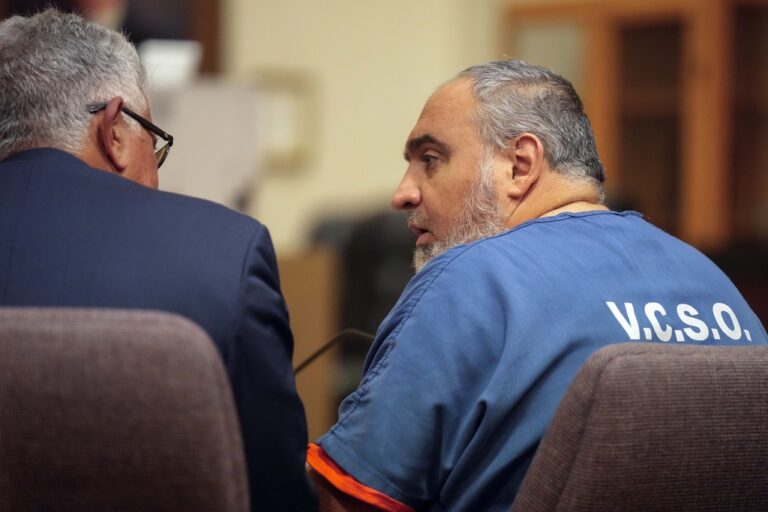When someone struggles inside, they usually don’t call a therapist first. They turn to someone they know—maybe a rabbi, a pastor, or a friend in their faith circle.
That first step matters. It sets the tone for everything that follows. If that person listens without judgment and points them toward real help, it can open a door that might have stayed shut.
This is where faith and mental health can work hand in hand. Together, they create a kind of care that feels personal and safe. For many people, especially in minority or religious communities, this balance can be the difference between silence and healing.
Why Faith-Based Support Still Plays a Central Role
People trust their spiritual leaders not just because of faith, but because those leaders understand their lives. They speak the same language. They share the same values.
And when someone is in pain—emotionally, spiritually, or mentally—that trust becomes even more important.
Faith leaders often:
-
Hear concerns before anyone else does
-
Offer safe, private conversations
-
Know how to respond with care, not judgment
But they’re not mental health professionals. That’s why partnerships matter. When rabbis and pastors know when to refer someone, it helps that person get deeper support without shame.
Mental Health Care Isn’t Reaching Everyone Equally
Now more than ever, access to mental health care is urgent. But it’s not equal.
-
According to the National Institute of Mental Health, 1 in 5 U.S. adults lives with a mental illness.
-
Yet Black Americans are less likely to receive treatment, even when they report symptoms at the same or higher rates than white Americans.
-
Factors include lack of trust, cost, and cultural disconnect with providers.
That’s why culturally competent care programs are essential. These services are built with culture, faith, and lived experience in mind, not treated as an afterthought.
What Does Cultural Competence Look Like?
It’s more than having a diverse staff. It’s about real understanding.
A culturally competent provider listens differently. They’re aware of how faith, family, and past trauma show up in someone’s story.
They don’t dismiss someone’s spiritual beliefs. Instead, they ask questions like:
-
How does your faith help you cope?
-
Who supports you outside of therapy?
-
What has made it hard to seek help before?
It’s respectful. It’s honest. And it builds trust fast.
Faith and Mental Health Can Work Side by Side
Faith doesn’t replace therapy. Therapy doesn’t cancel out faith.
When they work together, people get the best of both:
-
A spiritual guide who knows their heart
-
A therapist who offers tools and strategies
-
A support system that makes space for both belief and healing
Here’s how that looks in real life:
-
A rabbi notices a teen is withdrawn and refers them to a local counselor
-
A therapist works with a client who wants to include prayer in sessions
-
A church hosts a group meeting where licensed professionals lead, while faith leaders support
It’s not complicated. But it works—because people feel supported from all sides.
What This Looks Like in Practice
More communities are starting to build these kinds of partnerships.
Some examples:
-
Synagogues or yeshivas holding mental health awareness events
-
Black churches partnering with licensed counselors for group sessions
-
Faith-based nonprofits offering mental health training for clergy
These aren’t fancy programs. They’re rooted in listening and showing up.
Organizations like SAMHSA have long emphasized the importance of faith-based and community partnerships in promoting mental wellness at the local level.
How to Know If a Program Is Safe and Supportive
Looking for help? Here’s what to watch for:
-
Are people of faith and culture involved in designing the program?
-
Do providers respect personal beliefs and backgrounds?
-
Is language inclusive and easy to understand?
-
Is feedback welcomed, not dismissed?
Programs that honor the full person—faith, identity, and all—are the ones people return to.
What Jewish and Black Communities Share
At first glance, the Orthodox Jewish and African American communities might seem far apart. But there are shared values that make collaboration possible.
Both communities:
-
Lean on faith during hardship
-
Protect family bonds
-
Value education and service
-
Thrive through mutual support
That overlap makes it easier to learn from each other. A successful program in one setting could inspire something similar in the other.
Partnerships don’t need to be large. They just need to be real.
The Cost of Ignoring Culture and Faith
When care feels foreign, people shut down. They avoid it altogether.
Here’s what happens:
-
A teen gets labeled as “difficult” instead of being supported
-
A grieving parent avoids therapy because they feel misunderstood
-
A family hides stress due to fear of judgment
This isn’t just uncomfortable. It’s dangerous. When people don’t get help, struggles grow.
Respecting someone’s background isn’t optional—it’s necessary.
Educating the Next Generation
Change doesn’t happen overnight. But we can plant seeds now.
Faith-based schools, seminaries, and leadership programs can include basic mental health training. Just enough to recognize red flags and point people toward help.
Future rabbis and pastors don’t have to be therapists. But they can be powerful first responders in an emotional crisis.
They can ask better questions. They can respond with confidence. And they can guide their communities toward healing, not in place of faith, but through it.
Final Thoughts: Healing Takes Trust
People want to be helped by someone who understands their world.
When faith and mental health teams work together, that’s exactly what they offer. It’s not about fixing people. It’s about walking with patience, kindness, and full respect for who they are.
Programs that blend trust, culture, and care aren’t flashy. But they’re life-saving.
Because healing doesn’t start with a diagnosis, it starts with someone saying, “I see you. I hear you. Let’s take this next step—together.”
Frequently Asked Questions
Can faith and mental health support really work together?
– Yes. Many people turn to faith first when they’re struggling. When spiritual leaders and therapists work together, it creates care that feels personal and safe.
What is cultural competence in mental health care?
– It means understanding someone’s values, beliefs, and background before offering care. Culturally competent providers don’t assume—they listen, ask, and respect.
Why do some people avoid traditional therapy?
– There are many reasons. Some don’t trust the system. Others feel judged or misunderstood. When therapy doesn’t reflect someone’s culture or faith, it can feel distant.
How do I know if a mental health program is a good fit?
– Look for signs of respect and inclusion. Ask if the program welcomes feedback, honors spiritual values, and offers care that feels familiar, not clinical.
Are there programs that focus on both faith and therapy?
– Yes. Many communities now offer blended support, like group meetings held at places of worship or faith-informed counseling.










